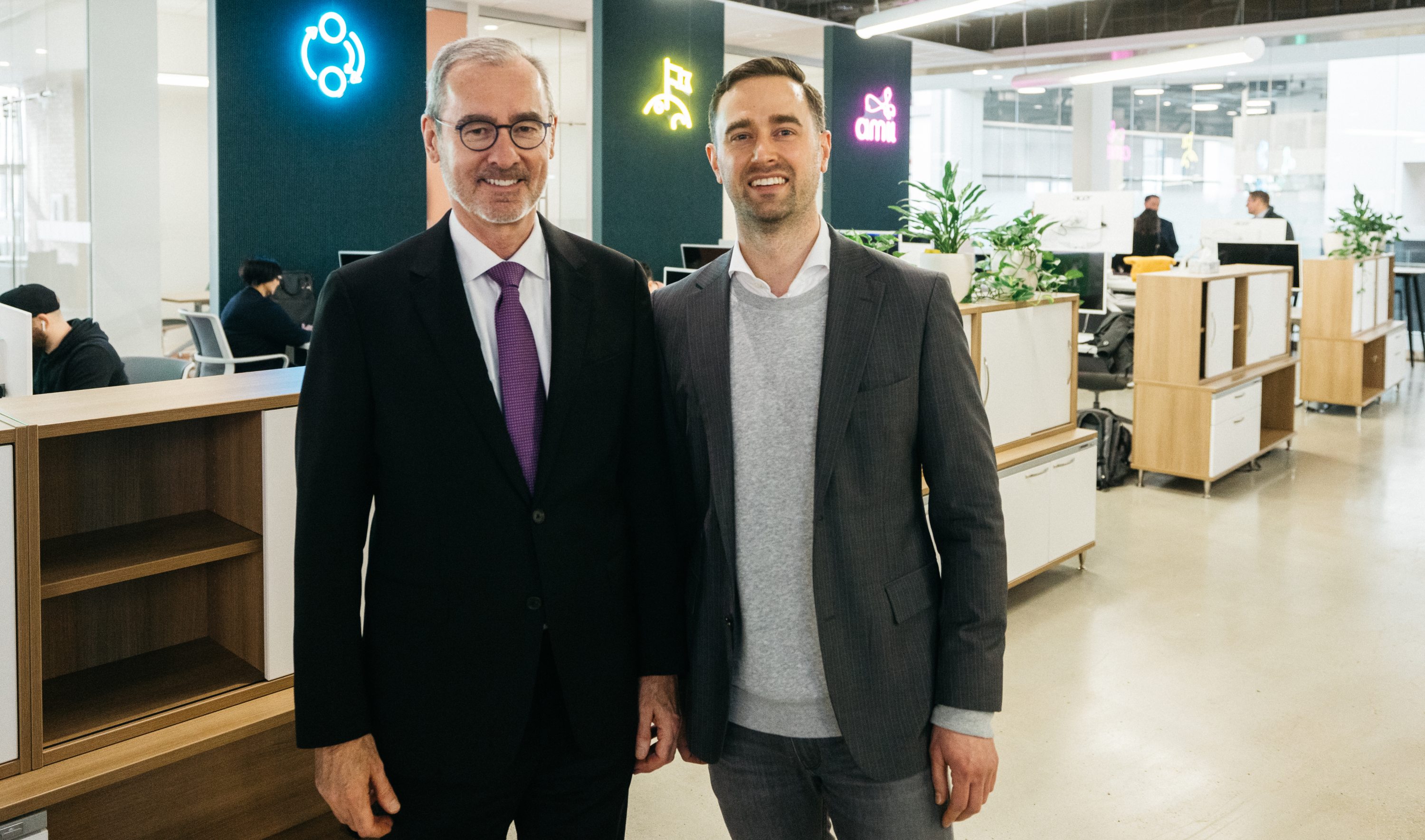Artificial intelligence research was once the sole domain of computing scientists with expertise in coding and machine learning models. But that’s no longer the case. Today’s AI world looks a lot different — researchers from diverse disciplines are weaving together their expertise to solve countless real-world problems.
The Canada CIFAR AI Chairs, a foundational component of the CIFAR Pan-Canadian AI Strategy, are research powerhouses leading the charge — and thanks to a $30-million investment, the University of Alberta and the Alberta Machine Intelligence Institute (Amii) will soon be home to 20 faculty members who will be eligible to join their ranks, helping Alberta maintain its world-leading status in AI research and technology.
“This historic investment in artificial intelligence will have a long-lasting impact on the university. Not only does this deepen our partnership with Amii, it strengthens our position as world leaders in the AI sphere,” said U of A president Bill Flanagan at an event today at Amii’s downtown Edmonton headquarters announcing the new funding.
The U of A has ranked in the top three globally in artificial intelligence and machine learning research over the last 25 years, and Amii, formed in 2002, likewise has more than two decades of successes.
In 2017, Amii became a stand-alone research institution and one of Canada’s three national AI hubs in the Pan-Canadian AI Strategy. The 2021 federal budget added an investment of up to $443.8 million over 10 years in the Pan-Canadian AI Strategy, further building capacity in this area. The two institutions have a lengthy history of fruitful collaborations, many of which are led by Canada CIFAR AI Chairs.
Along with building on a foundation of AI excellence in the province, the 20 new faculty members will create an increase in graduate student capacity, helping to cultivate the next generation of AI researchers. Amii’s $30-million investment in the U of A over five years for this upcoming phase of recruitment follows on the initial investment of $15 million in the first Pan-Canadian AI Strategy.
“Our position as leaders in fundamental AI research is known globally,” says Cam Linke, CEO of Amii. “With this investment, Amii looks forward to growing this model to include a focus on areas that can be transformed by breakthroughs in AI and solve the world’s biggest problems: pandemics, food insecurity, climate change and health care.”
In addition to five new faculty members in computing science, 15 will focus on three areas: health, energy and Indigenous leadership.
AI has the potential to significantly improve health outcomes and quality of life for patients and their families, with tools allowing health-care practitioners to obtain necessary data with more efficiency and precision, and in some cases, even help predict health issues before they become more serious. AI models can also aid in drug discovery and design, identifying which drugs can target certain diseases or improving drugs so they’re better able to reach their targets.
Six faculty members will be recruited in this focus area, joining several CIFAR AI Chairs already leading innovative projects. Russ Greiner and his collaborators are creating machine learning tools that can predict early symptoms of schizophrenia and help health professionals screen more accurately for depression, bipolar disorder and PTSD.
Jacob Jaremko, a practising physician, is developing a “21st-century stethoscope” that will make it faster and easier to diagnose injury and illness, and has founded a spinoff company developing an AI tool that could revolutionize thyroid ultrasounds.
Two of the faculty members focused on AI and health are also being funded through generous philanthropic support from The Dianne and Irving Kipnes Foundation.
The other two focus areas, energy and Indigenous leadership, build on the U of A’s existing strengths in these fields, with Energy Systems and Situated Knowledges: Indigenous Peoples and Place identified as signature research and teaching areas.
Two faculty members will be recruited within the Indigenous leadership area. One will support Indigenous-led work in epidemiology and health data, with the chair also taking on a key leadership role in the Summer Internship for INdigenous Peoples in Genomics program. The second researcher’s work will focus on questions of how AI will affect the future of Indigenous peoples, bringing in potential collaborators in the digital humanities.
The energy focus area encompasses wide-ranging topics relevant to the 21st-century energy transition, resilience and climate change. Researchers working in this area are finding ways to harness the power of AI to engineer more sustainable materials, develop better climate change models and improve the process of discovering new chemicals.
Researchers within this area will also answer questions of next-generation automation, finding ways to gather new data through remote sensors and efficiently analyze and act on that data with potential applications including agriculture and forestry. For example, CIFAR AI Chair Martha White led a pilot project that aimed to make water treatment greener, more efficient and less expensive.
Turning their attention to the fundamental matter that makes up our world and beyond, researchers will also examine applications of AI and machine learning in both quantum and space contexts, building on the U of A’s research strength in both areas.
“Our collaboration with U of A continues our ambition in research, and Amii is positioned to translate this research into industry for maximum impact,” noted Linke.
“The university will now begin recruitment for 20 diverse, interdisciplinary researchers that will further our leadership in the development and commercialization of technology with the potential to change the world,” said Flanagan.
